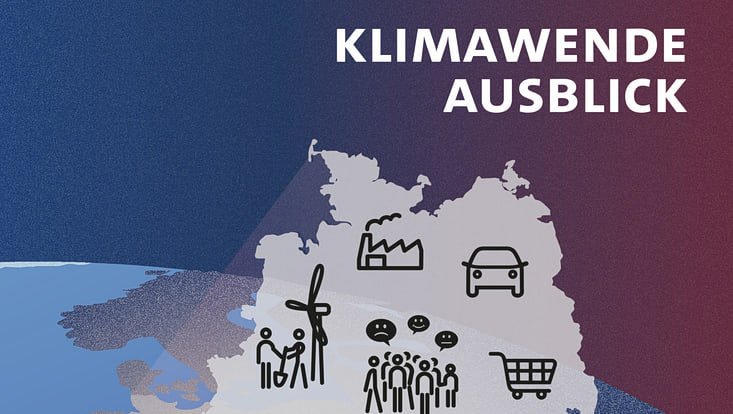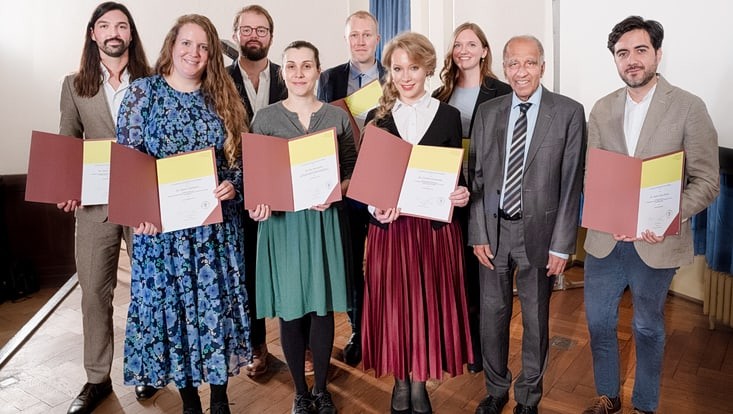and Society (CLICCS)
Climate expertise can make a difference – in varying doses
4 March 2025, by Stephanie Janssen (CLICCS), RWI Essen

Photo: M. Piwnicki / unsplash
Federal climate protection measures aren’t currently sufficient to achieve our climate targets. Voluntary climate protection can help reduce CO2 emissions. But which options are really the most effective? A study involving experts from the University of Hamburg’s Cluster of Excellence for climate research CLICCS shows that expert advice can make individual climate protection more effective.
For the study, more than 4,100 people were surveyed, representing a broad cross-section of the German populace. They were introduced to a complicated climate protection topic: how, with the help of European emissions trading, additional climate protection measures can be implemented for maximum efficacy. In brief, individuals can purchase CO2 certificates from the European emissions trading system and subsequently cancel them to protect the climate. All those surveyed were offered one of three explanations of the method – from brief and simplified to detailed and complex – or no explanation at all.
In this regard, Dr. Johannes Jarke-Neuert, formerly of CLICCS and now working at the Forschungszentrum Jülich, CLICCS professor Grischa Perino, and colleagues from the Leibniz Institute for Economic Research (RWI) were most interested in determining how much information was sufficient to motivate people to pursue more effective climate protection. And, at the same time: would too much information deter them from doing so?
Which way is more effective? Even complex explanations improve the outcome
The study shows that the populace is open to following the advice provided by experts, even when they present a wealth of details and contradict their own assumptions. The results have just been published in the journal Scientific Reports. According to the study, even a simple explanation suffices: it increases the likelihood of a given person choosing to pursue a more effective variant of voluntary climate protection – by more than two-thirds in comparison to the group that received no explanations.
Moreover, there seems to be no such thing as too many details: in fact, extensive explanations slightly increase the likelihood of people opting for the most effective form of climate protection. “Expert advice is accepted and helps people choose more effective options when it comes to individual climate protection,” says climate economist Grischa Perino. “An encouraging finding that can be transferred to other voluntary climate protection measures where it’s not always clear which variant is most effective.”
Important aspects regarding the validity of the study’s results: the choice made during the study had to actually be put into practice, and those participants who opted to pursue climate protection had to give up actual money. In terms of voluntary climate protection measures, purchasing and subsequently canceling emissions rights from the EU emissions trading system is becoming more and more popular, also among individuals. In Germany alone, this approach has already avoided more than 120,000 metric tons of CO2.
Publication
Jarke-Neuert J, Perino G, Flörchinger D, Frondel M (2025): General public takes up counterintuitive expert advice on effective climate action, Scientific Reports, volume 15; 4136, doi.org/10.1038/s41598-025-88122-0
For individuals in Germany, purchasing and canceling EU emissions certificates as a form of voluntary climate protection is currently offered by three non-profit organizations: ForTomorrow, Compensators and Climate Concept Foundation. Grischa Perino serves on a voluntary basis at all three organizations: as a supervisory board member, foundation board member, or scientific advisor.
Contact:
Prof. Dr. Grischa Perino
University Hamburg
CEN - Center for Earth System Research and Sustainability (CEN)
Cluster of Excellence „Climate, Climatic Change, and Society“ (CLICCS)
Tel.: +49 40 42838 8767
E-Mail: grischa.perino@uni-hamburg.de


